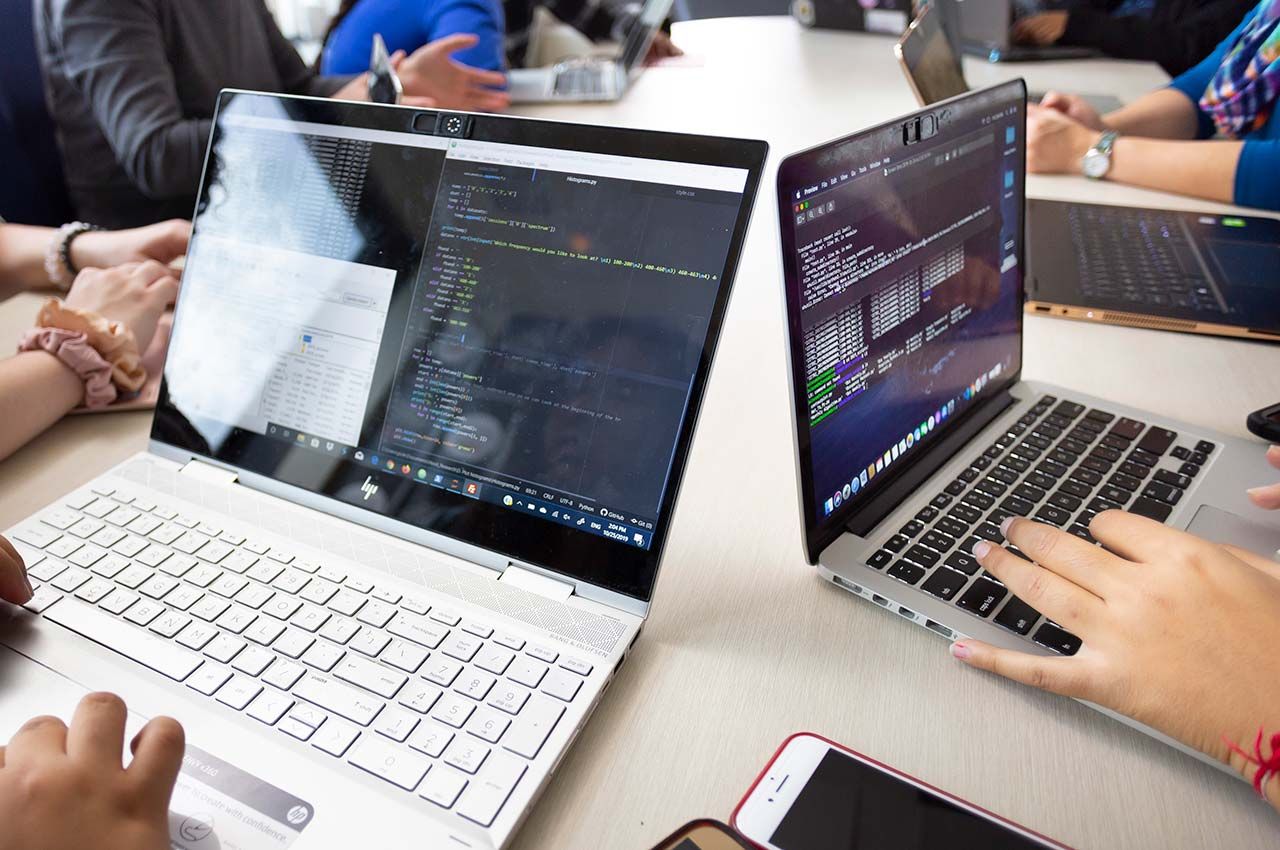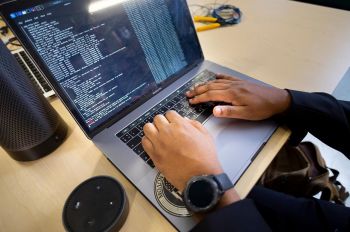Data Science Students Put Skills to the Test During Summer at Accenture

Although COVID-19 has disrupted clinical trials for new treatments of life-threatening diseases, two teams of students from Illinois Institute of Technology’s Master of Data Science program have discovered ways to continue this work during the pandemic.
The students spent the summer working with Accenture, a global consulting and innovation firm whose clients’ clinical trials for treatments for Alzheimer’s disease and hepatitis C were shut down due to the pandemic. The shutdown not only negatively impacted the research and potentially the health of the participants, but it also amounted to a daily financial loss of $8 million per trial for the clients. By leveraging artificial intelligence, the students were asked to determine which areas were most impacted by the pandemic; to identify safe areas to continue the clinical trials; and to diagnose which trials should continue, stop, or be redesigned.
The teams examined patient demographics, trial location availability, and COVID-19 prevalence at potential trial locations. The use of AI in this process allowed for continued development of potentially life-saving medicines while minimizing the risk of COVID-19 on study participants and health care professionals.
“The biggest challenge we faced was that clinical-trial-related data was scarce,” says Alexis Gaziello (M.A.S. DS 2nd Year). “It’s delicate information, and finding reliable and updated sources wasn’t trivial. We ended up making hypotheses and extrapolating conclusions from other areas in order to get results.”
The team developed a dashboard that gives the user information they need to decide whether and how to continue the clinical trial, as well as a data pipeline to retrieve, process, stage, and display data onto the dashboard.
“We applied many aspects from our master’s coursework to this project, from project management skills, to the more technical parts in which we used the data science skills learned through the whole year, as well as presentation skills,” says Marta Garcia Ruiz De Leon (M.A.S. DS 2nd Year). “Our coursework gave as a starting point from where we could learn new things and apply them all together.”
“People usually say that data scientists end up using most of their time searching, cleaning, and preparing the data,” Gaziello says. “Although we spent a lot of time researching new methodologies and preparing meaningful presentations that would efficiently communicate our findings, I learned that the saying is true.”
Aaron W. Brown, a consulting senior analyst at Accenture, supervised the teams of students and says they were able to generate new models and ideas to help Accenture and its clients understand the disruptive nature of the pandemic on the clinical trials.
“The ability of the master’s in data science students to thrive and deliver high-quality results with little direction and oversight in a timely and efficient manner in line with what expectations are of an Accenture Applied Intelligence Data Science team was great,” Brown says. “It showcased the great talent at Illinois Tech to senior Accenture leadership.”
"The Illinois Tech teams did an outstanding job of applying their data science and analytics skills to a very relevant real-world problem,” says Chad Caske, an applied intelligence senior manager at Accenture. “The outcomes are directly applicable to our life sciences clients in helping them to accelerate potentially life-saving medicines for patients. I was personally impressed with the Illinois Tech students’ ability to think outside of the box and achieve tangible outcomes."
Professor Shlomo Engelson Argamon, Illinois Tech computer science chair and Master of Data Science program director, was the faculty adviser for the project. He says that the people at Accenture showed a great commitment to working with and mentoring the data science students throughout the project.
“It was an exceptional educational experience for our students,” Argamon says. “The fact that they could work with people from different groups within Accenture and benefit from their expertise in different areas of the business was a great advantage.”
Brown says the opportunity to mentor students in an intense 14-week project has a lot of value for the Accenture employees who worked with the student teams.
“This led to an engaging experience for Accenture internally, and student insights and products helped the firm gain valuable insights into the micro view of COVID-19 on clinical trial disruption,” Brown says.
The students say having the experience of taking part in a hands-on, real-world project with working data science professionals complements their coursework in ways the classroom can’t.
“It was a great way to be exposed to Accenture’s style of teamwork and critical thinking before delving into my full-time position as an analyst,” says Monica Bhagavan (BME ’20), an Accenture technology analyst. “Moreover, coming from a biomedical engineering background, the project gave me a great way to start learning new and important skills in data science, agile, and visualization in a hands-on manner. The skills I learned through the project was an exciting stepping stone into learning skill sets and applications beyond what I learned during my coursework.”
“I was amazed by the people at Accenture,” Gaziello says. “They are proficient people with impressive analytical and communication skills, always eager to help and contribute to the project. Being able to take part on a real-world problem and apply the theoretical knowledge that we have been gathering through the course was really insightful.”
“I really enjoyed working with the whole team of Accenture,” Garcia says. “They were willing to help as much as they could. They made us feel as part of the Accenture team, and we had a great time working together.”




